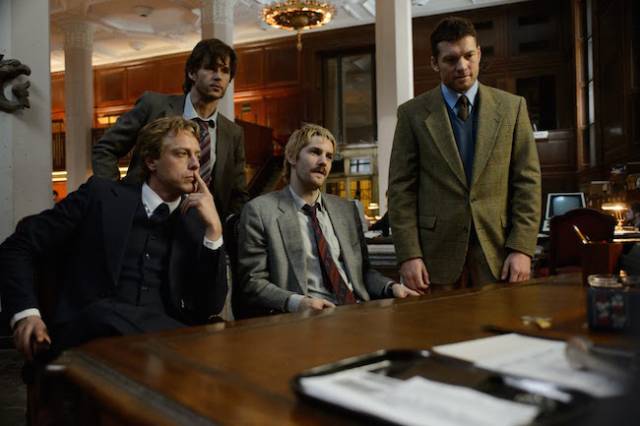
 What responsibility do movies have to reality? Marketers love to trumpet when their film is “based on a true story,” even if it’s just a passing resemblance, because it gives the film relevance and allows audiences to think they’re being less frivolous with their time. But telling true stories is a potential minefield – just ask the people behind Selma and American Sniper, both of which are morally complex films that have been crudely reduced to partisan talking points and attacked. However, the opposite is just as dangerous – don’t massage the facts at all, and your movie might just be boring.
What responsibility do movies have to reality? Marketers love to trumpet when their film is “based on a true story,” even if it’s just a passing resemblance, because it gives the film relevance and allows audiences to think they’re being less frivolous with their time. But telling true stories is a potential minefield – just ask the people behind Selma and American Sniper, both of which are morally complex films that have been crudely reduced to partisan talking points and attacked. However, the opposite is just as dangerous – don’t massage the facts at all, and your movie might just be boring.
In this context, the producers of Kidnapping Mr. Heineken surely thought they had a home run – a real life story that’s inherently compelling, filled with action, and centered on an internationally known name. Yet while Kidnapping Mr. Heineken has proven plot elements, along with an above-average director and cast, the ingredients never quite cohere and we’re left with a film that’s less than the sum of its parts.
Set in a richly realized early 1980s Amsterdam, the protagonists are Willem Holleeder (Sam Worthington) and Cor van Hout (Jim Sturgess), two friends, soon to be brothers-in-law, and small time crooks who are ready to enter the big leagues. They devise a plan with a few others to kidnap the wealthiest person around: beer baron Freddy Heineken (Anthony Hopkins). The kidnapping itself is an exciting scene, showing the methodology and criminal tradecraft involved, and they soon have Heineken and his driver imprisoned in a soundproof cell. The real trial begins after, as the gang tries to act cool as the entire city speculates on the crime of the century while they wait much longer than planned for the ransom to materialize.
The direction, by Daniel Alfredson (of the Swedish Girl with the Dragon Tattoo) elevates the material, giving the film an interesting aesthetic while capturing period details. But the problem here is the script, which aspires to being a thriller but contains no surprises at all. Despite decent efforts by the cast, the protagonists never develop past generic criminals and give the audience any emotional involvement in whether they succeed or fail. The trailer makes it seem that Hopkins in get into the minds of his captors like in The Silence of the Lambs, which would certainly make the film more compelling, but Heineken only manages to raise some slight doubts in the gang and get his diet changed to Chinese food.
Kidnapping Mr. Heineken is a frustrating film, because the potential shows, but is wasted nonetheless. Like in many real life stories, the film features text at the end, detailing what happened to the characters later. One member of the gang escaped from a criminal mental institution to Paraguay, where he was tracked down by a journalist (whose book the script was adapted from) and the two leaders of the gang apparently became “the Dutch Godfathers” after they were released from prison and resumed their criminal careers – these few lines contained more mystery and intrigue than the entire film that preceded them and one wishes the filmmakers had expanded their scope or done something to tell this story more inventively. As it is, Kidnapping Mr. Heineken has its moments, but overall is a frustratingly conventional film, that never manages to rise above, or even to the level of, its source material.